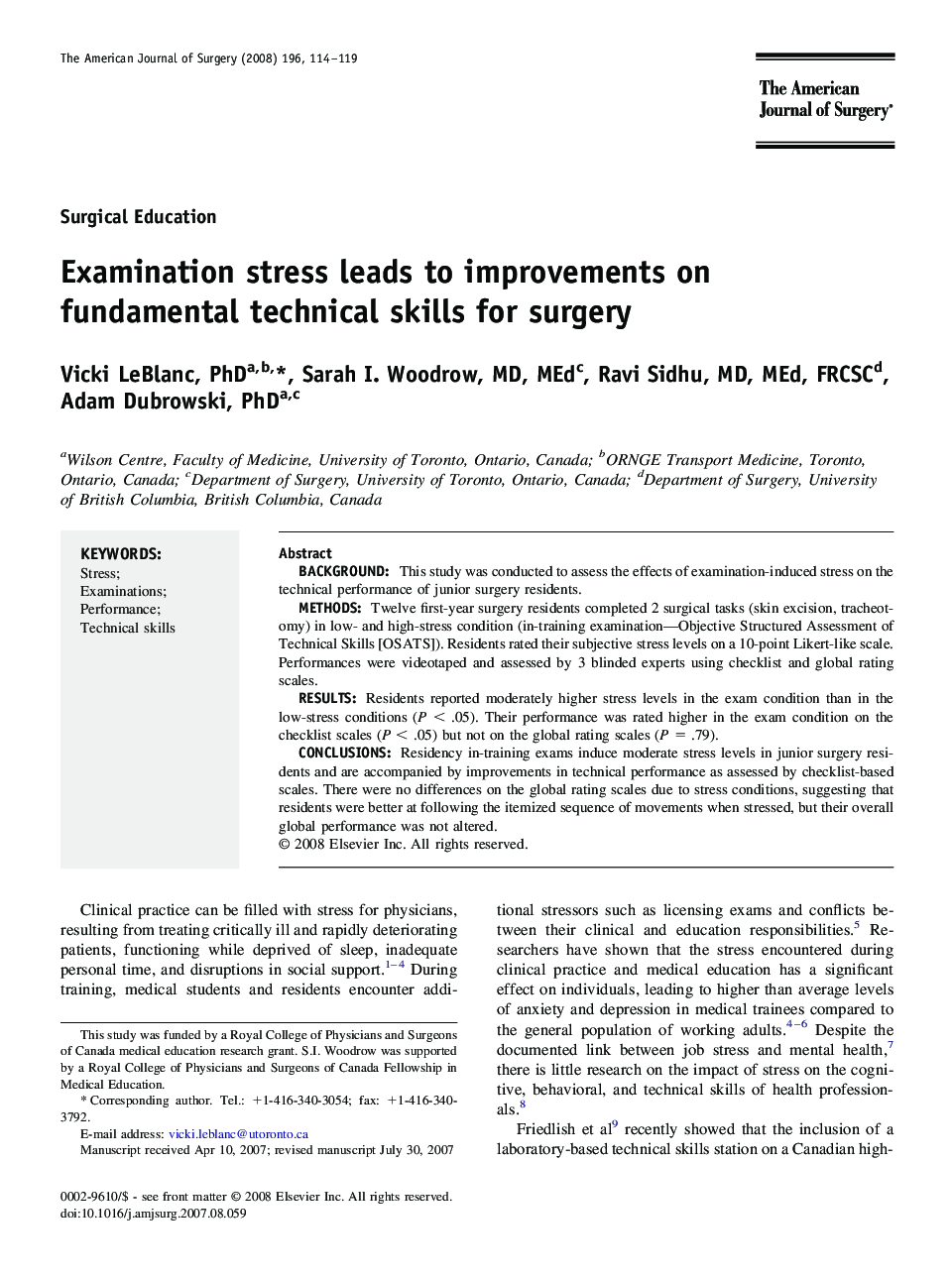| Article ID | Journal | Published Year | Pages | File Type |
|---|---|---|---|---|
| 4280866 | The American Journal of Surgery | 2008 | 6 Pages |
BackgroundThis study was conducted to assess the effects of examination-induced stress on the technical performance of junior surgery residents.MethodsTwelve first-year surgery residents completed 2 surgical tasks (skin excision, tracheotomy) in low- and high-stress condition (in-training examination—Objective Structured Assessment of Technical Skills [OSATS]). Residents rated their subjective stress levels on a 10-point Likert-like scale. Performances were videotaped and assessed by 3 blinded experts using checklist and global rating scales.ResultsResidents reported moderately higher stress levels in the exam condition than in the low-stress conditions (P < .05). Their performance was rated higher in the exam condition on the checklist scales (P < .05) but not on the global rating scales (P = .79).ConclusionsResidency in-training exams induce moderate stress levels in junior surgery residents and are accompanied by improvements in technical performance as assessed by checklist-based scales. There were no differences on the global rating scales due to stress conditions, suggesting that residents were better at following the itemized sequence of movements when stressed, but their overall global performance was not altered.
